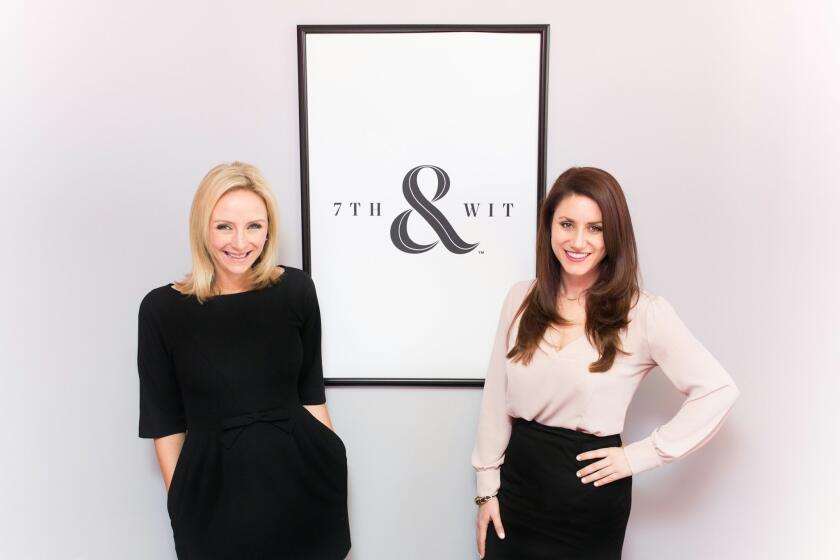Q&A: Tower Paddle Boards after ‘Shark Tank’
He is known as the guy who forgot his pitch on ABC reality show "Shark Tank" in its third season.
But Tower Paddle Boards founder Stephan Aarstol managed to recover and snag a $150,000 investment from billionaire Mark Cuban, in the episode that aired in March 2012. In exchange, Cuban got 30 percent ownership in the business and its earnings.
Aarstol and his online manufacturer direct stand-up paddle-board company have since been recognized by both People and Entrepreneur magazines as one of the show's top success stories.
We sat down with him in his airy showroom in Pacific Beach on a recent Thursday afternoon to catch up, see how the high-profile investment changed the company and gain some tips on getting investors and promoting a new business.
Q: What was the biggest change that came of Mark Cuban's investment in your company?
A: The show was actually filmed in July 2011, and we had just started selling our product, but the deal didn't close until November that year. When Cuban invested, we had a $130,000 loan, which we needed to pay off, and then he asked us to cut a $50,000 check to him when I told him we had really great sales the month after the show aired. So we basically grew without an investment, and we were stocked out for a lot of the time on our best products. I really misjudged how much money it would take to grow.
But we have grown, and ultimately it helped us go from selling boards from the factory, to launching our own manufacturing operation with a local shaper.
After we launched in October 2010, our sales were only $3,000 that year. In 2011, they were $265,000, and in 2012, they were $1.7 million. This past year, 2013, they were $3.1 million. All with only four employees. I expect this coming year we'll bank $1.7 million of about $5 million in sales.
Q: What is it like sharing ownership of your business with a billionaire you barely know?
Stephan Aarstol
Title: Founder of Tower Paddle Boards
Age: 41
Education: MBA from the University of San Diego
Family: Single with son Alex, 9
Hobbies: Mostly developing businesses like BuyPokerChips.com, SmartBar Drink Tokens and Tower Paddle Boards. "It's like a sport to me." Also an avid adventurer traveler. Last two trips were to Colombia and Vietnam/Cambodia/Thailand, and planning a three-week trip to Africa this fall.
Last book read: "Jab, Jab, Jab, Right Hook" by social media thought leader Gary Vaynerchuck
2013 Revenue: $3.1 million
A: He's not involved in the day-to-day decision-making. I've never seen or spoken to him since the show, but I can email him about strategy whenever, and he's great about responding.
They're usually one-liners, like his gut reactions, but he has a sick intuition. His business instincts are unbelievable. It's like having a great boss. Because when you go into business for yourself, you don't have the mentorship of a supervisor anymore, and you have to rely on your entrepreneur buddies a lot to give you guidance and encouragement.
Going back to that check that he asked for early on, it's weird working with billionaires, because they kind of have a chip on their shoulder from people treating them like an ATM. But writing him that check built a bridge for us, and he gave us a $300,000 line of credit later on when we needed it to scale up.
Q: If you hadn't gone on the show, do you think you would have landed a similar investment somewhere else?
A: No. I know nothing about raising money. All I know is that it's like a fairytale. I've been an entrepreneur for 15 years and have never raised one cent, besides that show. Because people aren't going to invest unless it's friends and family. That's what Silicon Valley is, a bunch of extended friends and family, which is why people can pitch and get money there. But my advice to other entrepreneurs is to think about a business you can do without raising money, because raising money is a myth.
Q: OK, so the "Shark Tank" investment was for entertainment, but what did Cuban see in your plan that attracted him?
A: Paddle boarding is in a boom right now, and you have all the big companies selling paddle boards in retail shops, which requires all these markups for shipping and retail. Because we sell direct from manufacturers, we're able to have only this one markup for shipping. And we saw from the beginning that people inland were adopting paddle boarding, and most don't have surf shops nearby to go get a board. At its heart, we're an e-commerce business, and we don't have the overhead of a retail shop, so we don't even need to sell that many units to be successful. With an e-commerce company, you can be so hyper-efficient and automated, and outsource a lot of your work. There are about 30 other paddle board companies out there that are all competition, but none of them are super technical like us.
Q: What would be your advice to other new business owners hoping to market themselves?
A: The biggest thing is, identify one-time events like the "Shark Tank" episode and leverage those for success. I've milked that as much as I can, speaking at events and trying to position ourselves as a poster child for the show.
One opportunity to do that is in new media. There's lots of new media out there, and reality TV, which used to be really rare, now features about 1 in 100 people; and online and on cable, everything is so fragmented. If you're able to leverage that media, you're going to be more likely to succeed. Begin to think about how you can leverage their hunger for content to help your business. Think about what your business is, and what goofy reality shows are out there that you might be able to appear on.

